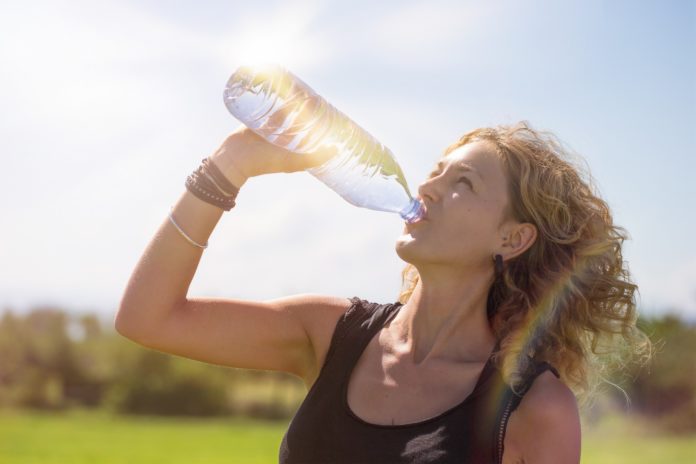UVA vs UVB Rays
UVA and UVB rays are two types of radiation from sunlight that, in excess, can be harmful to your skin. UVA rays penetrate the skin more deeply than UVB rays and are responsible for skin aging, wrinkling, and tanning. UVB rays damage the outermost layers of the skin and are primarily responsible for sunburns and reddening of your skin.
Which SPF Sunscreen Is Right for Me?
When considering which level of SPF to use, it's important to know that an SPF of 30 does not necessarily offer twice the protection of an SPF of 15. While higher SPF sunscreens offer more protection, it is not a linear scale. A higher SPF means that a greater percentage of harmful rays are prevented from reddening or burning your skin.
- SPF 15 protects against 93% of UVB rays
- SPF 30 protects against 97% of UVB rays
- SPF 50 protects against 98% of UVB rays
Applying Sunscreen
The best way to prevent sunburn is to follow these tips from the American Academy of Dermatology:
- Generously apply a broad-spectrum, water-resistant sunscreen with an SPF of at least 30 to all exposed skin. Remember, a broad-spectrum sunscreen will protect you from both UVA and UVB rays. Reapply about every two hours and after swimming or sweating.
- Wear protective clothing whenever possible. Long-sleeved shirts, pants, a wide-brimmed hat and sunglasses all can protect your skin against the sun. Look for clothing with a UV protection factor (UPF) or that are made of a tightly woven fabric.
- Seek shade when appropriate. Remember that the sun's rays are strongest between 10 a.m. and 4 p.m. If your shadow is shorter than you are, find shade.
- Use extra caution near water, snow and sand. They reflect the damaging rays of the sun, which can increase your chances of sunburn.
How To Treat Sunburn
Sunburn is a sign of skin damage from spending too much time outdoors without wearing a protective sunscreen. If you find yourself with a sunburn, here are a few ways you can find relief:
- Taking an over-the-counter anti-inflammatory medication (such as ibuprofen or aspirin) and applying cold compresses or ice packs can provide some pain relief.
- Taking cool baths or showers frequently may also help.
- After a bath or shower, gently pat yourself dry, but leave some water on your skin and apply a moisturizer. The use of moisturizing creams and lotions, including aloe vera, will also help prevent drying and cracking.
- If a blister does form, leave it intact for a faster healing process.
- If you have a sunburn, stay out of the sun for a few days in a cool, shaded or indoor space and drink plenty of water.
What Is Sun Poisoning?
When an itchy, red rash appears on your skin after it’s been exposed to sunlight, this is called sun poisoning – you may also know it as a sun allergy. It may take only minutes for signs of sun poisoning to appear after exposure to the sun. You could experience redness, itchiness or pain, elevated red patches, blisters, scaling or even bleeding.
Stay Safe in the Sun
Summer is a great time to relax and have some fun in the sun. Keeping your skin properly protected can let you enjoy the sun frequently and safely. And, if you’re in the sun often, it’s a good idea to check your skin at least once a month to make sure everything is all right.
Know Where To Go When It’s Not Life Threatening
Go to your primary care provider (PCP) if you have concerns about your sunburn. For questions about over-the-counter remedies, contact your PCP. If you can’t get an appointment at a time that works for you, you have options. MinuteClinics are good alternatives if you need to see a health care provider sooner than you can see your PCP, or if you need care outside of your PCP’s normal office hours. MinuteClinics can treat many minor illnesses and injuries and prescribe medications.
When To Go To Urgent Care or the Emergency Room
In some cases, sunburns can be bad enough to require advanced care. Go to urgent care or the ER if your symptoms include:
- Severe pain
- Severe blistering
- Severe headache
- Confusion
- Nausea or vomiting
- Faintness or dizziness
Those with a severe burn who also suffer from a serious health condition – such as cancer, HIV/AIDS, or diabetes – should seek emergency care.
Subscribe to Emory Health Source
For more stories about how the people at Emory Healthcare make a difference, the care that helps patients every day, and health and wellness tips, subscribe to our monthly email newsletter.
Make an Appointment
If you’re not sure of which type of care you need, call your family doctor, make an online appointment through your MyChart patient portal, or call 404-778-7777 to speak to one of our representatives for assistance.




